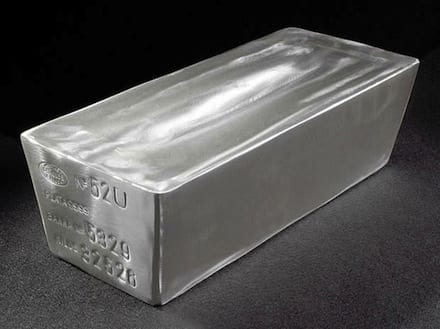Last week was a wonderful and well deserved break for all of us. After the chaos we experienced over the last few years, it’s nice to finally feel a little more at ease.
But that doesn’t mean that the markets are stable. As a matter of fact, the world economy is still in a very volatile space. The only difference this time around is that we’ve heard it all before. From market crash to inflationary woes, we have taken just about everything the financial world can throw at us.
While the world is still in the midst of recovery and at risk of falling into a double-dip recession, there is one nation who not only survived the market crash better than anyone, but has now become one of the first to true recovery: Canada
Canada’s unemployment rate dipped below eight per cent in June and Statistics Canada said Friday the economy added a whopping 93,200 jobs in the month.
The gains in jobs mean that, in less than a year, Canada has almost made up all the jobs lost during the recession that began in the last quarter of 2008!
But there’s a problem.
While Canada’s labour force appears to be back on track, it stood in stark contrast to the United States, where 125,000 jobs were lost last month. It was the first monthly job loss in the U.S. this year, furthering speculation by analysts and economists that the US economic recovery has run out of steam.
The United States hasn’t run out of steam. Its running out of money…
No More Money, No More Jobs…Just More Debt
Since the crash, President Obama has done nothing but spend money in hopes that the economy will work itself out. His administration has held benchmark overnight interest rates close to zero since December 2008 and has pumped well over $1 trillion into the economy. For the most part, it appears his plan has worked. Stocks have rebounded from their lows and panic has turned into passive sentiment.
But once you start peeling back the layers, the beautiful apple on the outside hides nothing more than a rotten core.
The US is probably six months or more into a so-called economic recovery but the rate of unemployment has remained high. So while last month’s jobs report actually showed a drop in US unemployment rate, despite losing 125,000 jobs, the drop was mostly due to people giving up on looking for work. Worse, the job report showed that the time it is taking for people to find a job continues to go up. Almost half of all the jobless Americans have been without a job for 6 months or more.
Yet the benefits keep coming and the unemployment budget keeps stretching.
We are in a difficult situation. The US has no more political power to create another stimulus program. Even if they did, it probably won’t work. Heck, if more than a trillion dollars isn’t enough…what is?
The Catch 22
If the U.S. wants to get out of this mess, it needs to take a page out of Canada’s books. It needs to instil confidence back into its citizens – starting with the banks.
Without the banks and credit flows, a true economic recovery cannot happen. And that’s the catch 22.
Banks won’t lend until consumers and the economy are clearly back on their feet. But consumers and the economy can’t get back on their feet without credit from the banks. Credit creates spending, spending creates jobs, and jobs create growth. Without credit, a recovery just can’t happen.
At the same time, it’s difficult for the banks to step up lending when borrowers are walking away from their mortgages every day.
The option ARMS debacle (see The Story Without a Happy Ending) is still happening and many US citizens could care less about their credit given the amount of money they lost in housing and in stocks.
I was in Las Vegas for the 4th of July weekend and met many US homeowners from around the country who are living in homes…without paying their mortgages.
One woman I met hasn’t paid a dime for over 12 months! Their theory is simple: Force me out if you can!
With so many foreclosures, the banks are having trouble dealing with all of them. It’s at the point where the banks will take any amount of payment they can get. Heck, a few hundred dollars here and there is better than a few thousand dollars lost trying to foreclose (see Owners Stop Paying Mortgages.)
More Jobs Means More Taxes?
Next up, the U.S. needs its corporations to start hiring. But U.S. employers are hoarding cash because, like the banks, they remain pessimistic and lack confidence in their Government. They are worried about higher taxes that may be needed in the future to tame the trillion-dollar budget shortfalls Congress is racking up on an annual basis. If you are a company and you are looking to invest, you have to factor in the cost of future tax changes.
For example, many corporations have already been scared off with the recent health care package (see A Scary Reality Check) costing millions of dollars that could have gone into hiring new workers. What’s to stop the government from adding more taxes?
If corporations begin to hire and the unemployment rate drops, it would signal an economic recovery. But as soon as the current U.S. government smells recovery, rates get hiked, and they may implement new tax laws which will ultimately hurt the bottom line for these corporations.
Yet, another catch 22.
It was a similar story after the end of the tech bubble. Firms hoarded cash while they trimmed inventories but they didn’t really start spending and hiring until the housing bubble took over, lifting consumer spending and convincing businesses profits could be made by growing.
Only this time around, there is no housing bubble…
The Bottom Line
The strong employment numbers out of Canada adds to the theory that the Bank of Canada will move to hike its benchmark interest rate for the second straight time at its next policy meeting on July 20. This Canadian recovery will mean higher rates and a stronger dollar for Canadians – which will ultimately lead to lower housing prices and lower exports.
Employment numbers in Canada will eventually come to a standstill if the Loonie maintains its high value, as exports from Canada decline. Much like China, Canada needs to keep its currency down in the long-term if it wants to keep foreign investments flowing into the country.
The U.S., on the other hand, is still in troubled waters. Regardless of any new government interventions, the U.S. will maintain high unemployment numbers for the rest of 2010 and probably much of 2011.
But there is great news.
Light At the End of the Tunnel
Although this recovery will take lots of time, it certainly does not mean the stock markets are done. Instead, these current environments provide a suitable playing ground for not only short term traders, but a great playing field for the long term investor.
In the end, when the econom
y truly recovers a few years from now, the markets will eventually be far higher than where they are today and we will more than likely see new record highs.
Bluechip companies such as Research in Motion (TSX: RIM) are being considered grossly undervalued by many fund managers and analysts at current prices. A few years from now, we wouldn’t be surprised to see this one back to its old highs of well over $100/share. (disclosure: we own shares in RIM)
Remember, it’s hard to foresee a future where Canada is doing great and the U.S. foundering. The recent unemployment numbers out of Canada are encouraging, but it doesn’t mean we’re back to normal.
So stay prepared and invest wisely.
Until next time,
Disclaimer and Disclosure
Disclaimer and Disclosure Equedia.com & Equedia Network Corporation bears no liability for losses and/or damages arising from the use of this newsletter or any third party content provided herein. Equedia.com is an online financial newsletter owned by Equedia Network Corporation. We are focused on researching small-cap and large-cap public companies.Our past performance does not guarantee future results. Information in this report has been obtained from sources considered to be reliable, but we do not guarantee that it is accurate or complete. This material is not an offer to sell or a solicitation of an offer to buy any securities or commodities.
Equedia.com has been compensated to perform research on specific companies and therefore information should not be construed as unbiased. Each contract varies in duration, services performed and compensation received. Equedia.com is not responsible for any claims made by any of the mentioned companies or third party content providers. You should independently investigate and fully understand all risks before investing. We are not a registered broker-dealer or financial advisor. Before investing in any securities, you should consult with your financial advisor and a registered broker-dealer. The information and data in this report were obtained from sources considered reliable. Their accuracy or completeness is not guaranteed and the giving of the same is not to be deemed as an offer or solicitation on our part with respect to the sale or purchase of any securities or commodities. Any decision to purchase or sell as a result of the opinions expressed in this report OR ON Equedia.com will be the full responsibility of the person authorizing such transaction.
Please view our privacy policy and disclaimer to view our full disclosure at http://equedia.com/cms.php/terms. Our views and opinions regarding the companies within Equedia.com are our own views and are based on information that we have received, which we assumed to be reliable. We do not guarantee that any of the companies will perform as we expect, and any comparisons we have made to other companies may not be valid or come into effect. Equedia.com is paid editorial fees for its writing and the dissemination of material and the companies featured do not have to meet any specific financial criteria. The companies represented by Equedia.com are typically development-stage companies that pose a much higher risk to investors. When investing in speculative stocks of this nature, it is possible to lose your entire investment over time. Statements included in this newsletter may contain forward looking statements, including the Company’s intentions, forecasts, plans or other matters that haven’t yet occurred. Such statements involve a number of risks and uncertainties. Further information on potential factors that may affect, delay or prevent such forward looking statements from coming to fruition can be found in their specific Financial reports. Equedia Network Corporation., owner of Equedia.com has been paid six thousand four hundred and thirty Canadian dollars plus gst/hst per month for 7 months which totals forty five thousand dollars plus gst/hst of advertisement coverage on Minco Silver Corporation. The company (Minco Silver Corporation) has paid for this service. Equedia.com currently owns shares of Minco Silver Corporation and may purchase shares without notice. We intend to sell every share we own for our own profit. We may sell shares in Minco Silver Corporation without notice to our subscribers. Equedia Network Corporation is a distributor (and not a publisher) of content supplied by third parties and Subscribers. Accordingly, Equedia Network Corporation has no more editorial control over such content than does a public library, bookstore, or newsstand. Any opinions, advice, statements, services, offers, or other information or content expressed or made available by third parties, including information providers, Subscribers or any other user of the Equedia Network Corporation Network of Sites, are those of the respective author(s) or distributor(s) and not of Equedia Network Corporation. Neither Equedia Network Corporation nor any third-party provider of information guarantees the accuracy, completeness, or usefulness of any content, nor its merchantability or fitness for any particular purpose.












